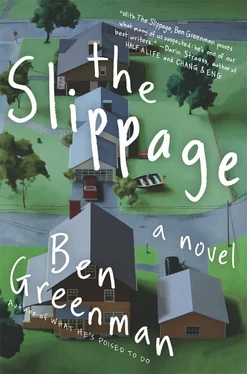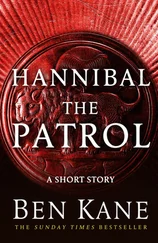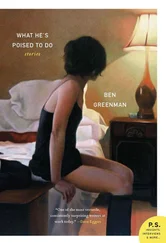William was overcome by fatigue at first, but then he was overcome by the opposite. He walked down the hall to the bedroom, came back to the garage, ended up in the kitchen, uncertain what he was looking for. In the bathroom William looked at himself in the mirror. He saw a man who preferred illustration to photography, winter to summer, South America to Europe, basketball to baseball, who thought often of death, preferring to divert it into metaphor, and dreaded the days when he could not, who frequently experienced a violent hatred of the ways that people asserted their own importance, who wondered if he knew anything, especially the things that he once thought he knew completely. He flicked off the light and watched his reflection in the dark.
When Louisa came home, he greeted her at the door and said he had coffee in the kitchen for her and that she needed to come and sit. “There’s news,” he said.
“Are you expecting?” she said.
He laughed because he thought anything else, even a grave face, would be a kind of ambush. He let her get halfway through her cup of coffee. When he told her about Jim, her hand flew up to her mouth like a bird, and she began to breathe shallowly through her nose. Then she pulled her arms tight around her, each palm matched to its opposite shoulder; the muscles stood out in her forearms but they were not very strong muscles and the effect was one of failure. “When did we see him last?” she said. “He looked good, I thought.” She dragged an index finger through the wet corner of her eye. She looked like she would be wiping her eyes like that all night.
William wasn’t expecting a second call from Bonnie. “I feel like I owe you some more details,” she said. Her voice was thick and thin at once. “I found him.” She paused, though not long enough for William to say anything, which was a relief, and then she tipped forward into the rest of her explanation. “He was sleeping on the couch in the guest room. He was doing that more and more, at first because the kids snuck into our bed at night and woke him up, but then for no reason at all. On the night I’m talking about, they weren’t even there: they were at my parents’ house. But he never came to the bedroom, and I figured he was on the couch, like always. He was sensitive to noise and to light, so it was always like a cave in there, door shut tight, lights off. I came to get him in the morning and the door was open a crack and all the lights were on. There was a bottle of pills on the table next to him. I went to shake him, and the second my hand touched his arm I knew. It wasn’t just that I guessed. I felt it. The absence of it. I didn’t even try to revive him. I just called the police.”
A question stirred dimly within William, and he brought it into the light. “Did he leave a note?”
Bonnie made a harsh noise that sounded almost like a laugh. “Not just one,” she said. “Evidently this had been on his mind for a year or so. We were in debt and he wasn’t telling me. He was addicted to pills. He couldn’t sleep because he felt like everything was vanishing. He was worried that he had cancer. It’s hard to even tell what parts of what he said were true.” She drew a deep breath and this time when she spoke her voice was steely and tearless. “I have two kids,” she said. “A man with children shouldn’t be allowed to do that.”
“Terrible,” William said, meaning all of it. He kept most of the information from Louisa, except the fact that Jim had thought that he was sick, because that seemed like a plausible explanation for an impossible act.
The next morning, Louisa made coffee that she didn’t drink and started in on how Jim had looked the last time he had visited them. “He’d lost some weight,” she said. “Not too much, though. He said he’d been working out regularly, that he was cutting out red meat. Why would someone let vanity rule them, even a little, if they’re thinking of ending it all?”
“He probably wasn’t thinking about it yet,” William said. “Or he was putting on appearances. Or he was fighting to stay afloat.”
“He had an uncle who killed himself,” she said. “Jim always said he couldn’t imagine ever doing anything like that.”
“That was twenty years ago,” William said. “Why would what he said then matter now? The person he became might not even be connected to the person he was.”
“If people are going to change so much,” Louisa said, “then we shouldn’t be able to remember them as they were. It’s too awful.” She got her things and went to the front door. It all seemed like labor and William suddenly felt that he, too, was moving with difficulty.
William called Wallace. He needed to arrange a time to pick up some paperwork from him out at the site. “Haven’t seen you in a little while,” Wallace had said on the phone, sounding a little forlorn. He told William he had to go survey a new site at some point, but that he’d leave the papers for him in the command center if he wasn’t around when William got there.
It was time to walk the dog, who wasn’t in the yard or in the kitchen or in the bedroom. William tried the garage, but no luck there either. Out of the narrow window facing the street he saw a shape flash by, and then another. Each darkened the window for only a fraction of a second, and the series of them signaled like a code. He opened the door and saw that it was a pack of boys on bicycles, racing and shouting each other’s names. “Your mother,” one of them said, laughing. Across the street, Emma and Stevie were getting into their car. William waved and Stevie nodded in return. His face was set, not exactly grimly, and he had a zippered duffel slung over his shoulder. He pointed at Emma and said something to her, though the words didn’t carry to William. They backed their car out and drove up the street. Was it the baby already?
William went back inside. “Blondie,” he said, louder this time. No claws scratched on door. No tags jingled on collar. He called Louisa but she still didn’t pick up. “Do you have the dog with you?” he said. “Call me.” That’s when he thought to go out in front and check on the gate, which he found slightly ajar, wide enough to fit his entire forearm.
William started off down the street, whistling sharply for the dog. He knocked on neighbors’ doors, but two houses in a row were empty, and at the third Cassandra Kenner answered, wearing an extra-large men’s T-shirt and possibly nothing else. William asked after Blondie, received an invitation inside to call the neighbors, declined politely, and got out of there quick. He hopped into his car and looped through the neighborhood, up Albert and down Briar, up Pence and down Garth.
On Elster Street a dog idled against the flat wall of a hedge, but when he got closer he saw that it was a dark brown shepherd at least a third heavier than Blondie. Hinton: nothing. Cedar: no dogs, but a pair of cats and a little girl presiding over them in what looked like an extremely important meeting. Then, on Fallows, he saw Blondie crouched beneath a tree, nosing in a patch of high grass. He pulled to the side of the road. “Hey,” he said. “Come here.” She barked but stayed where she was. William got out of the car. Blondie had clawed into the under-soil; ants fled over her paws. “They might think you’re their god,” William said. He tugged the god by the collar, pushed her into the back seat, and sped up Fallows to Kenmore, and then Kenmore to Harrow.
When William pulled up to the house, he noticed that the deck was done. The finish had dried. It was beautiful, the color of dark beer. Wallace’s truck was gone, so he walked to the small office; the lien waiver was folded up inside an envelope and centered on the desk. He turned back around just in time to see Blondie leap from the car and sprint toward the edge of the lot, where the land was soft from recent rains. “Hey,” William said. “Come back here.” He sprinted after the dog. It felt good to run, and particularly good to be running after something. He caught Blondie, or she let herself be caught, and he led her back along the dry high grass that led up toward the hillock. When his phone rang, he reached for it with his free hand, which meant going across his body. His next step was wrong. He did not fall, but he stumbled, and Blondie tore free and went down into the thick bluish mud up to her hocks. “Goddamn it,” he said into the phone.
Читать дальше












